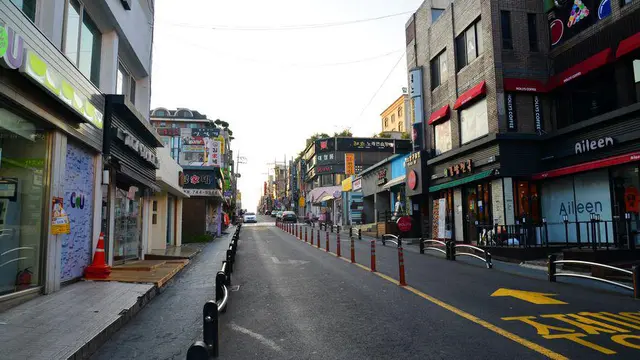South Korea warned Sunday that if the Democratic People's Republic of Korea (DPRK) would conduct another nuclear test, Pyongyang will have to pay the price for it.
"If North Korea (DPRK) ignores a grave demand from neighboring countries and the international community and conducts its (fourth) nuclear test, it will have to pay the price for it," Seoul's Foreign Ministry said in a statement.
The warning came after the DPRK threatened to possibly carry out a "new form" of nuclear test in protest against the United States' hostile policy toward Pyongyang.
Pyongyang's Foreign Ministry said in its statement, carried by the official news agency KCNA, that the DPRK will "not rule out a new form of nuclear test to further strengthen its nuclear deterrence," hinting at another nuke test.
It said that Washington will bear all responsibility in the event of a "catastrophic" event on the Korean Peninsula, warning the U.S. against taking any "rash action."
The statement came in response to the United Nations Security Council's statement made Friday at a closed-door consultative meeting, which condemned Pyongyang's recent ballistic missile launches.
The U.S. has manipulated the U.N. Security Council to smother the DPRK, the statement said, noting Pyongyang will exercise its legitimate defense right and has already prepared for various forms of countermeasures.
South Korea expressed deep concerns over the DPRK's threats of another nuclear test, which came after launching a series of short- and medium-range missile over the past two months.
The DPRK fired off two medium-range ballistic missiles, believed to be of the Rodong class, Wednesday morning, which came first in around five years. The Rodong missile was known to have a range of about 1,300 km capable of carrying nuclear warhead.
South Korea especially worried about the firing of Rodong missiles as it could be a signal of the DPRK's another nuclear test.
The DPRK conducted its first nuclear test in October 2006, three months after firing the Rodong missiles. In May 2009, Pyongyang carried out its second nuclear test, just two months before firing off other Rodong missiles to protest against the UN Security Council resolution 1874.
The third nuclear test was staged in February last year, just two months after Pyongyang launched the three-stage rocket called Unha-3, which Seoul claimed was a long-range missile.
Even before launching the Rodong missiles, Pyongyang fired a volley of short-range missiles and rocket-propelled artillery shells over the past weeks in what appeared to be in protest against the joint annual military exercises between South Korea and the United States.
The "Key Resolve" command post exercise, which began on Feb. 24, ended on March 6, but the "Foal Eagle" field training exercise will last until April 18 despite the DPRK's earlier call for delay or cancellation of the drills, which Pyongyang has denounced as the rehearsal for a northward invasion.
The South Korean foreign ministry said that it will thoroughly prepare for possibilities of all types of the DPRK's provocation, including the fourth nuclear test, in a close cooperation with the international community as well as the members of the six-party talks.
High-ranking military officials between South Korea, Japan and the United States will hold talks in Washington next month to discuss defense coordination against the DPRK's nuclear and missile threats.
The South Korean Defense Ministry said Friday that the sixth round of the Defense Trilateral Talks (DTT) among the three allies will be held for two days from April 17 in Washington D.C.
During the annual security cooperation dialogue, delegates from the three allies will discuss how to cooperate in the DPRK's nuclear and missile threats and transnational non-military threats such as humanitarian and disaster relief.
The defense dialogue was launched in 2008 to let deputy defense ministerial-level officials from the three nations talk about ways to coordinate in security issues.
The sixth round came as a follow-up action to the trilateral summit between South Korean President Park Geun-hye and Japanese Prime Minister Shinzo Abe under the arbitration of U.S. President Barack Obama.
During the summit held on the sidelines of the Nuclear Security Summit in the Netherlands earlier this week, the three heads of state agreed to hold tripartite talks among top nuclear envoys who represent the long-suspended six-party talks, stressing the need for the senior-level defense dialogue.
South Korea had yet to appoint its top delegate to the six-way dialogue aimed at dismantling the DPRK's nuclear program. The post remained vacant after the former envoy Cho Tae-yong was promoted to vice foreign minister in late February.
 简体中文
简体中文

